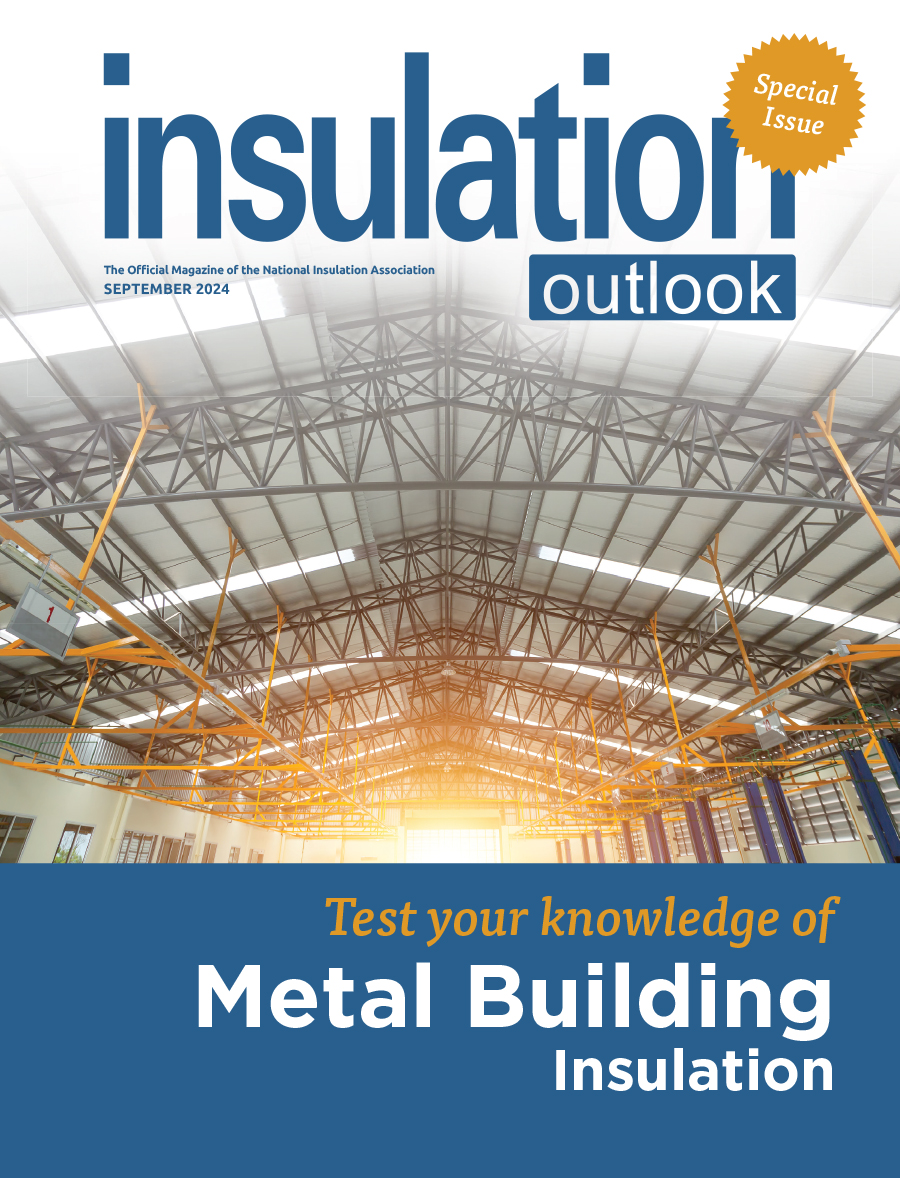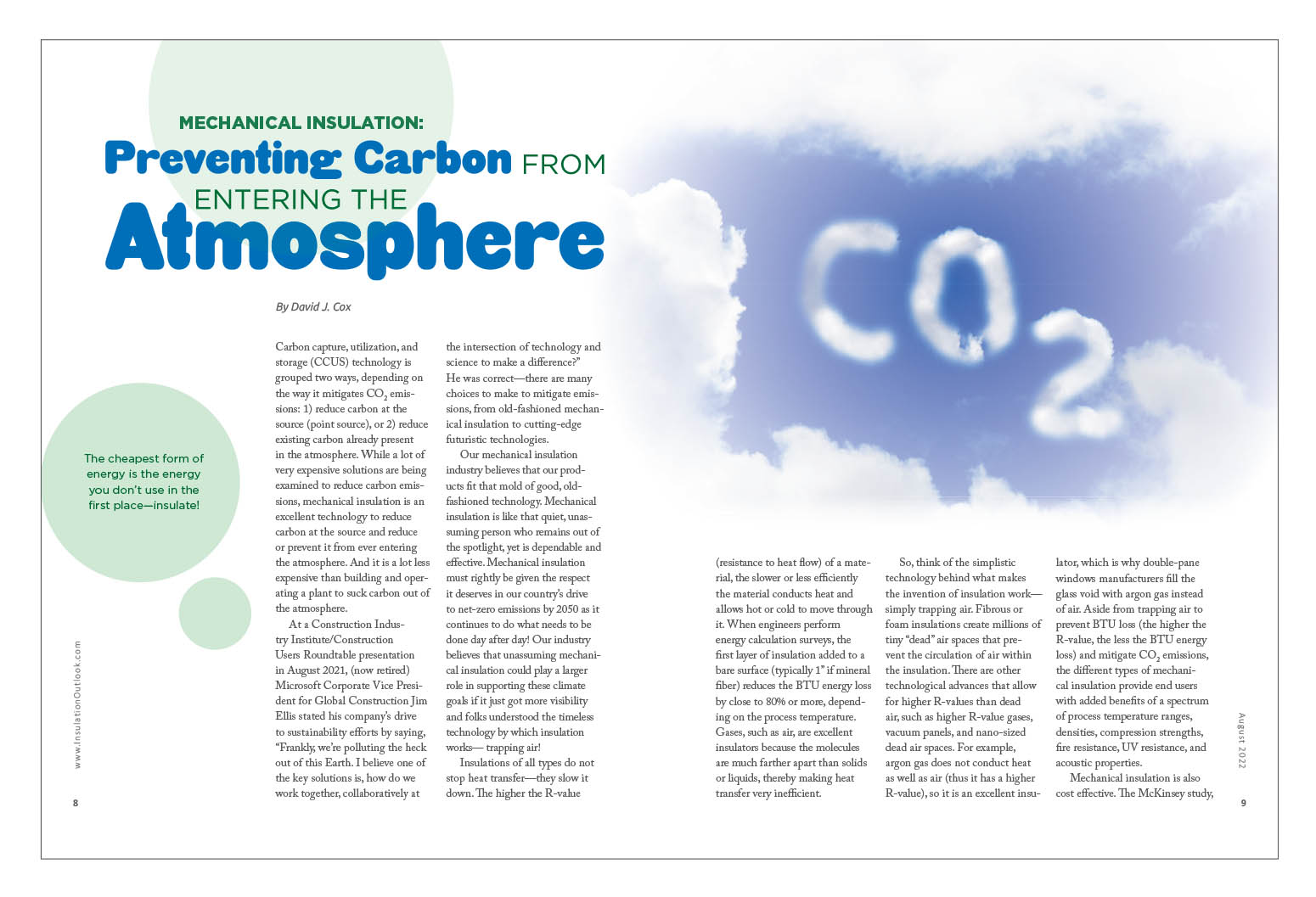September 2024

Also in the September 2024 Issue:
Metal Building Insulation Special Issue: An Introduction to Fiberglass Metal Building Insulation
A task force of NIA’s Metal Building Laminator Committee has authored seven articles to provide Insulation Outlook readers with a comprehensive overview of metal building insulation, covering its origins, code requirements, sustainability, benefits and attributes, and much more.
Back to Basics: R-Value and U-Value
The R-value of an insulation product is a thermal resistance rating that tells us how well a material resists heat flow. The higher the R-value, the better the insulation restricts heat transfer. Most insulation manufacturers use the ASTM C518 test to measure a material’s resistance to heat flow. Established by the American Society for Testing
Metal Building Insulation: It’s Sustainable!
Sustainable development requires an integrated approach that takes into consideration environmental concerns along with economic development. In 1987, the United Nations Brundtland Commission defined sustainability as, “meeting the needs of the present without compromising the ability of future generations to meet their own needs.” Today, there are almost 140 developing countries in the world seeking
Acoustics: A Key Consideration for Metal Building Insulation
The impact of acoustics on human productivity in commercial and industrial buildings is profound. Studies such as one published in Electronic Physician1 have shown that there is a direct and significant association between levels of sound present in an environment and the quality and length of human output. Additionally, both the U.S. Environmental Protection Agency
Metal Building Insulation and Surface Burning Characteristics
The NIA recently released a new, updated standard for metal building insulation. It can be found on the NIA website and is officially titled, “NIA Certified Faced Insulation® Standard (Version 404.2-2024).” One of the major changes to the standard centers on the surface burning characteristics of faced metal building insulation. The goal of this article
Metal Building Insulation and Air Leakage
Architects, engineers, and specifiers are required to incorporate energy efficiency codes as they continue to change with each passing cycle. One aspect strongly reflected in the approved energy codes is the tested air leakage requirements for structures, including metal building systems. A couple of states are early adopters (California and Washington), but many states—particularly those
2024 Commercial Energy Code Update
Over the last year, the commercial energy code landscape has seen several new state- and local-level adoptions, in addition to the publishing of a brand new American Society of Heating and Air-Conditioning Engineers (ASHRAE) standard. ASHRAE, together with the American National Standards Institute (ANSI) and the Illuminating Engineering Society (IES), published ASHRAE 90.1-2022. The new

